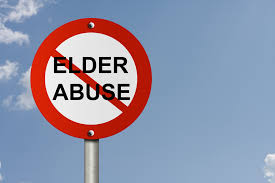
Recognising Elder Abuse
Elder Abuse is not acceptable – Would you recognise some of the less obvious signs ?
We all have the right to feel and be safe, regardless of our age or circumstances and it important that we are vigilant to ensure our elderly loved ones are safe and treated with the dignity and respect they have a right to and deserve.
Over the coming months, we are looking at the different categories of abuse that you are likely to come across in relation to older people. The next one in our series is neglect and helps identify signs of elder abuse.
Neglect
Neglect is a form of abuse whereby people responsible for providing care for someone who is unable to look after themselves, fail to meet their needs. Neglect can be intentional or can occur as a result of not understanding what the person’s needs are. Under the Mental Capacity Act 2005, willful neglect and ill treatment become a criminal offence.
Neglect occurs when there is failure to provide food, shelter, clothing, heating, medical care, hygiene or personal care, and the inappropriate use of medication. Examples could include not giving someone proper assistance with eating and drinking, or failure to provide a warm, safe and comfortable environment, failing to provide adequate personal care or ignoring someone’s health needs. Repeated calls for assistance may be ignored or someone’s care plan may not be read or followed.
Possible signs of neglect are:
• Urine smell in a person’s environment
• Pressure sores
• Depression
• Lack of stimulation or prolonged isolation
• Person has unkempt appearance or is dressed inappropriately
• Signs of malnourishment or dehydration
• Person has untreated medical condition
• Not being helped to the toilet when assistance is requested.
• Home has insufficient or no heating
• Under or over medication.
Paula’s Story
Rose had Alzheimer’s and lived in a specialist care home for people living with dementia. Her only relative, Paula, was unable to visit very often as she lived more than a hundred miles away and worked long hours. When Paula visited her aunt she was concerned to find that Rose did not have her own dress on and it is too big for her. Her hair had been cut badly, had not been styled and her lower dentures are missing. Paula was aware of a strong smell of urine in the home and observed that her aunt was wearing an incontinence pad that needed changing. The most worrying thing for Paula was that her aunt appeared depressed and withdrawn. Pauls contacted the Safeguarding Team at her Local Authority who carried out an investigation. As a result improvements were made and a new manager appointed.
If you have a concern about someone else involving harm or abuse and think the danger is immediate, phone the police now on 999! If it is less urgent, you can either:
Phone the police on 101 or
Contact Their Local Authority Social Services Dept and reporting it to the safeguarding department. Also, CQC should be informed so they can arrange for one of their inspectors to investigate the situation.
